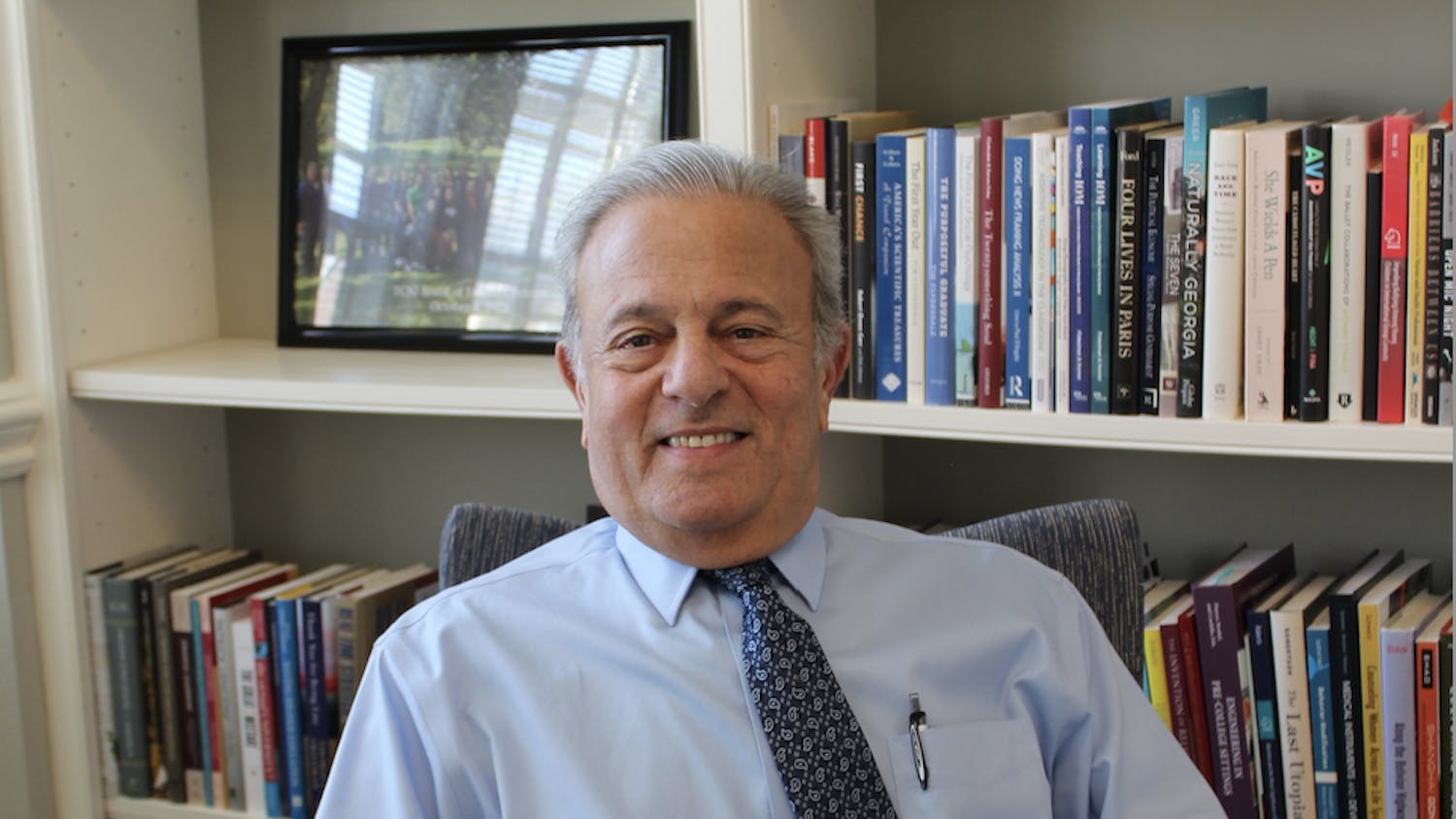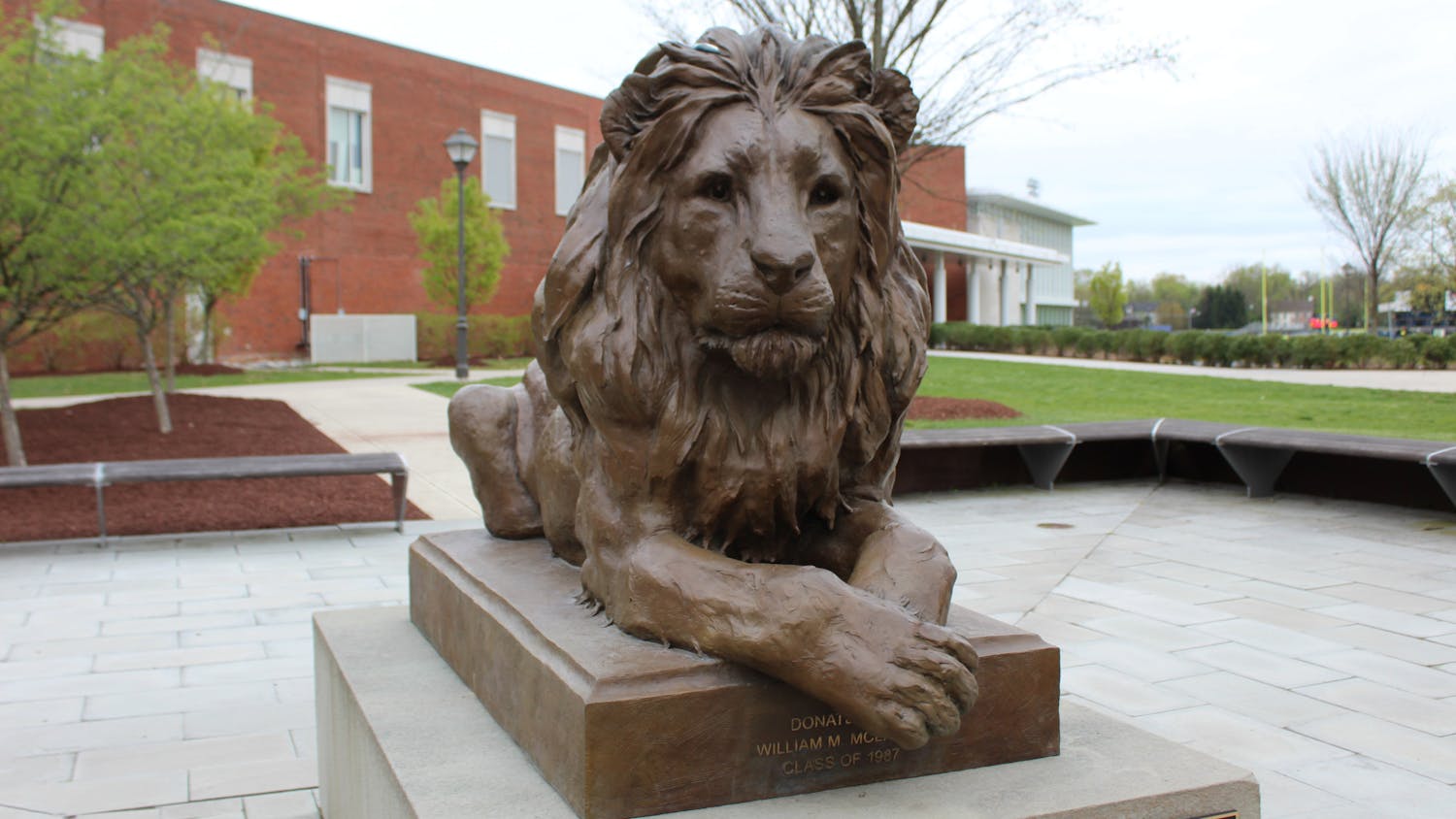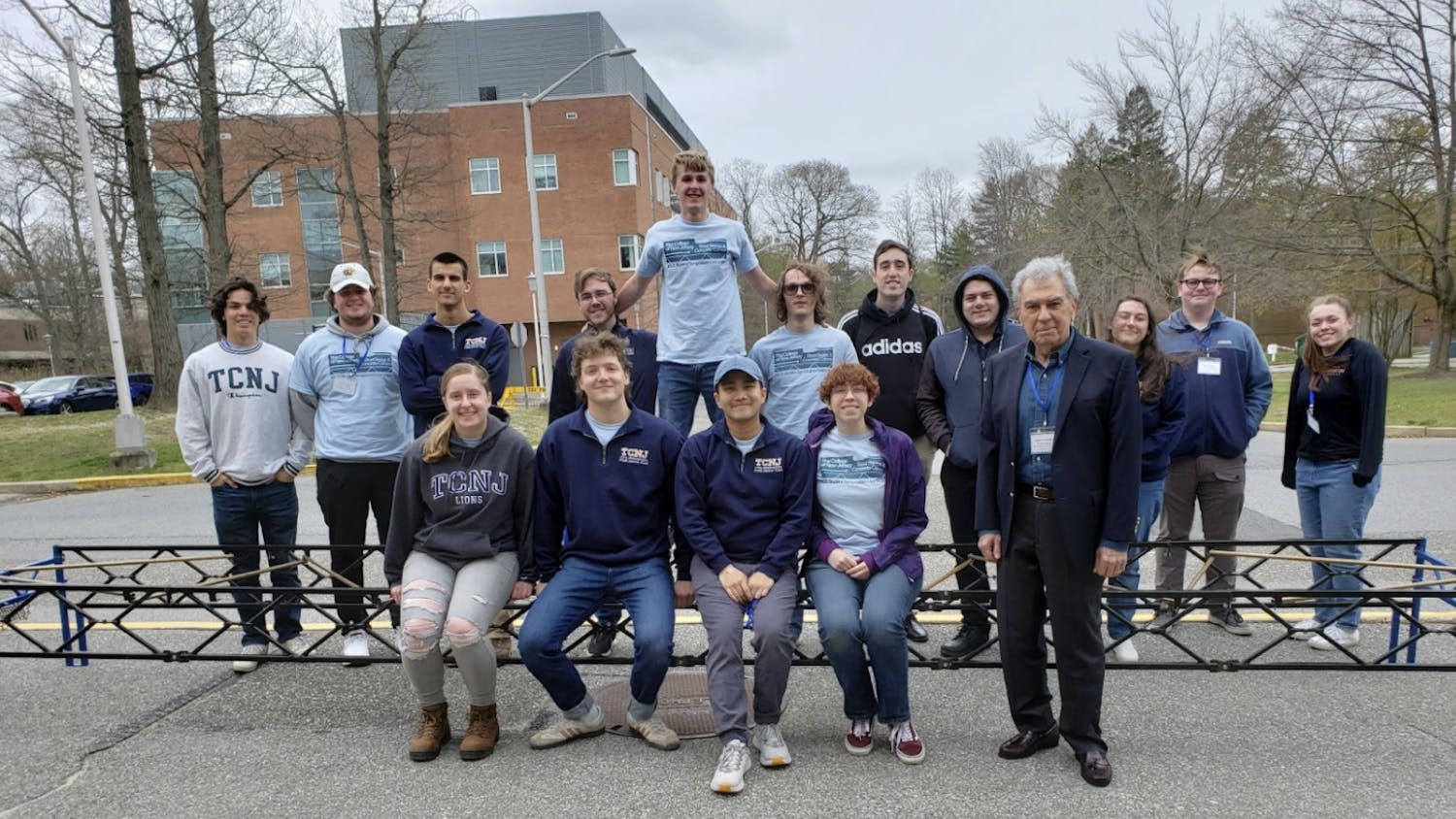By Kaitlyn Bonomo
Staff Writer
Rachel Yoo, a freshman communications major at the College, recalls taking the “Apocalypse Now” First Seminar Program (FSP) course. She credits the class dynamic and unconventional course theme for sparking her newfound interest in apocalyptic media.
“I loved that class,” Yoo said. “It doesn't have a typical classroom environment. It’s not just sitting there and getting information shoved down your throat. It breaks away from that and becomes so much more.”
One of the first tasks for freshman at the College is to select a course from the variety of FSP classes, with 87 currently active classes accommodating different interests of the incoming freshman and creating an environment where everyone feels welcome.
Being one of the first college courses freshmen are introduced to, classes such as “Walt Disney’s America” and “Let's Kill Hitler - The Ethics of Time Travel” is an unexpected shock to students. The classes fulfill the Liberal Learning requisite at the College under the civic responsibilities requirement.
FSP classes are not linked to any specific major, as stated in the FSP Learning Goals, “but rather are intended to support the development of students’ intellectual breadth.”
While each class must fulfill the minimum FSP expectations, 162 sections also meet goals associated with the race and ethnicity civic responsibility, with classes such as “Multicultural NYC” and “Incarceration Nation: The Literature of the Prison.” Sections under the course code FSP-163 meet goals associated with the gender civic responsibility, such as the pun-inspired class name “Terms of En-QUEER-ment: A history of the movies and LGBTQ identity.” Meanwhile, sections under the FSP-164 course code meet goals associated with the global-awareness civic responsibility, with classes such as “Morality, God, and Free Will” and “Conspiracy Theory in American Culture & Politics.”
The program works as an incentive for students to collaborate alongside professors and fellow students in an “intellectually exciting and challenging experience,” according to the College’s website.
Randy Schmidt is a faculty member in the Writing Program at the College and the instructor of “Apocalypse Now.”
“One of the key points of the FSP program is to broaden your critical thinking and understanding of the world,” Schmidt said. “And I think the apocalypse helps with that.”
Incoming college students are often told by their high school teachers to brace themselves for demanding and overwhelming courses. Yet, distinctly dynamic FSP classes seem to console this fear for freshmen.
“So often, you know, because FSP instructors pick their own themes, they like to just say that FSP’s were just going to be learning about such and such,” Schmidt said. “But it’s really about your entry into college and awakening of this critical thinking juncture. That’s what I like about the FSP’s.”
Students in “Apocalypse Now” use “The Walking Dead” as a textbook and have online discussions about movies watched in class, such as “Mad Max: Fury Road.” A break from strictly academic material, being assigned a comic book and having movie viewing days allows first-year students to settle down and ease off the pressure from a stress-inducing first semester at the College.
“I feel like the students have a lot of interesting things to read and watch about the apocalypse,” Schmidt said. “It makes students ask questions that they wouldn’t normally ask.”
Dr. Leeann Thornton, an associate professor in the department of biology at the College, has taken on the role of the coordinator of the First Seminar Program.
“The FSP classes are an important foundation of the TCNJ Liberal Learning curriculum,” Thornton said. “The professors are providing topics that are of great interest to them and asking the students to delve into multiple perspectives and a scholarly consideration of the topics. The students have the opportunity to practice writing, speaking and critically reading about a topic that is outside the scope of what they will cover in their program of study.”
First Seminar Classes may not be ‘easy A’ classes, according to some professors, but they challenge students to break away from their comfort zones and develop skills that a traditional classroom won’t provide.
Christina Ponnuchamy, a freshman biomedical engineering major at the College, expressed ambiguous feelings toward her FSP class, “The Refugee Crisis.”
“I like the content, but not the workload,” Ponnuchamy said. “You expect it to be an (easy) FSP, but the work can become too much.”
Despite the variety of classes, there is no guarantee that every freshman will be in an FSP class that interests them. Tariq Ali is a junior biomedical engineering major at the College who took an FSP called “The Arts as a Force for Social Change: American Movers and Shakers Since the 1900s.” As a junior who has already completed an FSP course, Ali recalled that the last time he had to write a paper was for his FSP, he was relieved to finally be able to take STEM classes instead.
“We had to write every single week, and that is just not my thing,” Ali said, reflecting on his experience in his FSP. “The part that stuck with me the most was the CEL (Center for Community Engaged Learning) day, which was tied into my FSP. We had students from Trenton High School come to our class, we painted with them and were able to engage with the Trenton community, which is something I never really had the opportunity to do before.”
When selecting their FSP course, students are instructed to select and submit six choices, yet ranking among these choices is not permitted. Students, without the option to emphasize their top choice, are rather placed into one of the six.
Meanwhile, if incoming freshmen request a roommate for the upcoming year, having any choice of an FSP class is revoked and FSP course placement determines where students will be placed in their residence halls.
Freshmen enrolled in “Apocalypse Now” and “Refugee Crisis” reside on the seventh floor in Wolfe Towers, along with the students in “Music in the Natural World” — three classes that couldn’t have more of a range in topics. With housing determined by these classes, residential dorms bring together students with the same interest based on which FSP they chose, while simultaneously exposing people with different interests in the same environment.
“The fact that a large part of the class is on our floor makes it more interactive,” Pounchamy said. “I can just walk into my group member’s room and yell at them to get the work done.”
“It’s nice,” said Jessie Roberts, a freshman interactive multimedia major. “We work together on projects without even leaving the floor and easily ask each other questions. I’ve even gotten help with projects for other classes, since my FSP has people from all different majors. I’ve met people who know more than me about my own major.”
FSP classes do not give any credit toward majors, allowing first-year students to branch out from the courses in their major and take a variety of classes for the fall semester.
“Who would think I can get help on a coding project with someone in my music FSP class?” Roberts said.
Though students are given flexibility and freedom while selecting their FSP, certain schools within the College will encourage students to take specific FSP courses. TJ Pisciottano is a freshman nursing major who was suggested to take FSP classes that satisfy additional Liberal Learning requirements. However, Pisciotanno selected and was placed into Schmidt’s “Apocalypse Now” class instead.
“It’s definitely a break,” Pisciottano said. “I’m comfortable walking into that class without being scared of what I’m getting into.”
Advice given from departments on FSP classes helps students select classes that appeal to their interests while allowing them to balance their workload with how much credit they want from the class.
“I try to get the instructors to develop assignments that will help the students practice writing and critical thinking to achieve the high expectations for academic performance that TCNJ has,” Thornton said. “I also encourage the instructors to consider the relevance of what the students will be reading or watching to help the content be something that students can care about, too.”







